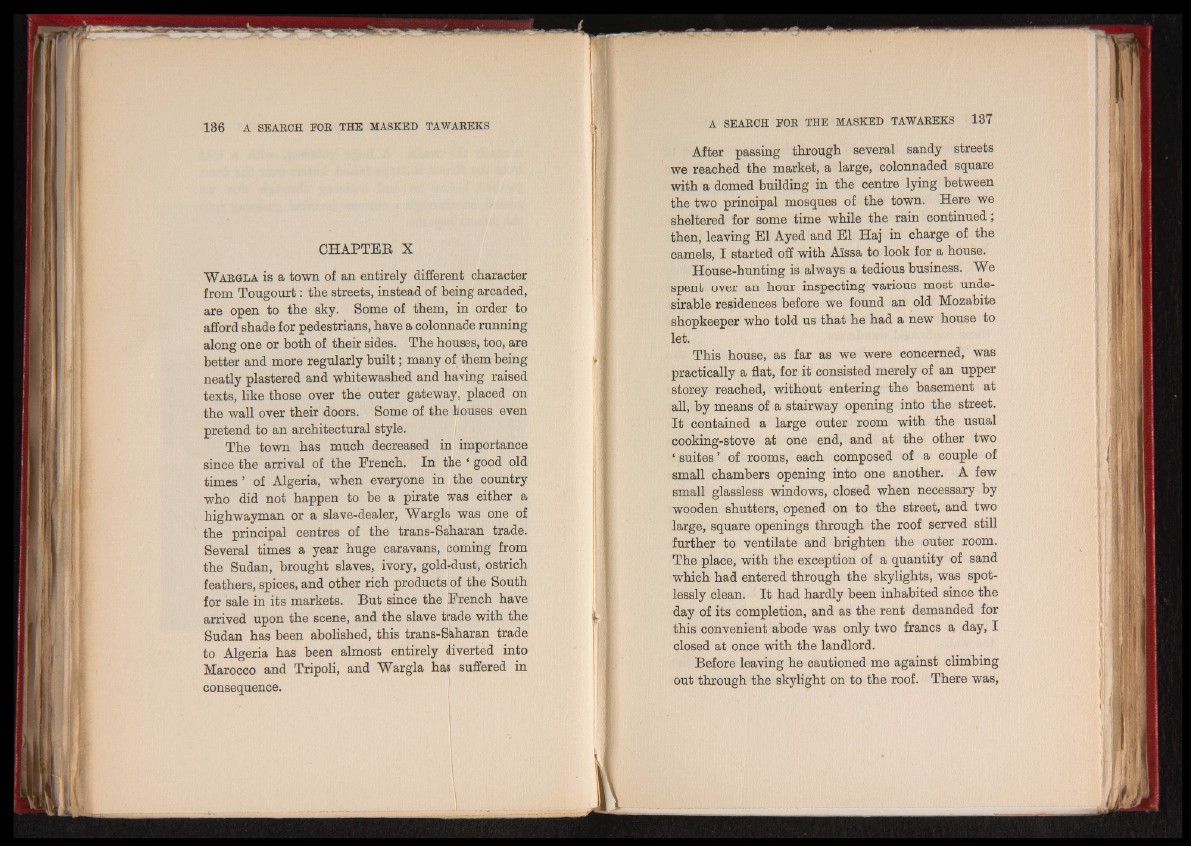
CHAPTEB X
W a r g l a is a town of an entirely different character
from Tougourt: the streets, instead of being arcaded,
are open to the sky. Some of them, in order to
afford shade for pedestrians, have a colonnade running
along one or both of their sides. The houses, too, are
better and more regularly built; many of them being
neatly plastered and whitewashed and haying raised
texts, like those over the outer gateway, placed on
the wall over their doors. Some of the houses even
pretend to an architectural style.
The town has much decreased in importance
since the arrival of the Erench. In the * good old
times ’ of Algeria, when everyone in the country
who did not happen to be a pirate was either a
highwayman or a slave-dealer, Wargla was one of
the principal centres of the trans-Saharan trade.
Several times a year huge caravans, coming from
the Sudan, brought slaves, ivory, gold-dust, ostrich
feathers, spices, and other rich products of the South
for sale in its markets. But since the Erench have
arrived upon the scene, and the slave trade with the
Sudan has been abolished, this trans-Saharan trade
to Algeria has been almost entirely diverted into
Marocco and Tripoli, and Wargla has suffered in
consequence.
After passing through several sandy streets
we reached the market, a large, colonnaded square
with a domed building in the centre lying between
the two principal mosques of the town. Here we
sheltered for some time while the rain continued;
then, leaving El Ayed and El Haj in charge of the
camels, I started off with Aissa to look for a house.
House-hunting is always a tedious business. We
spent over an hour inspecting various most undesirable
residences before we found an old Mozabite
shopkeeper who told us that he had a new house to
let.
This house, as far as we were concerned, was
practically a flat, for it consisted merely of an upper
storey reached, without entering the basement at
all, by means of a stairway opening into the street.
It contained a large outer room with the usual
cooking-stove at one end, and at the other two
‘ suites ’ of rooms, each composed of a couple of
small chambers opening into one another. A few
small glassless windows, closed when necessary by
wooden shutters, opened on to the street, and two
large, square openings through the roof served still
further to ventilate and brighten the outer room.
The place, with the exception of a quantity of sand
which had entered through the skylights, was spotlessly
clean. It had hardly been inhabited since the
day of its completion, and as the rent demanded for
this convenient abode was only two francs a day, I
closed at once with the landlord.
Before leaving he cautioned me against climbing
out through the skylight on to the roof. There was,